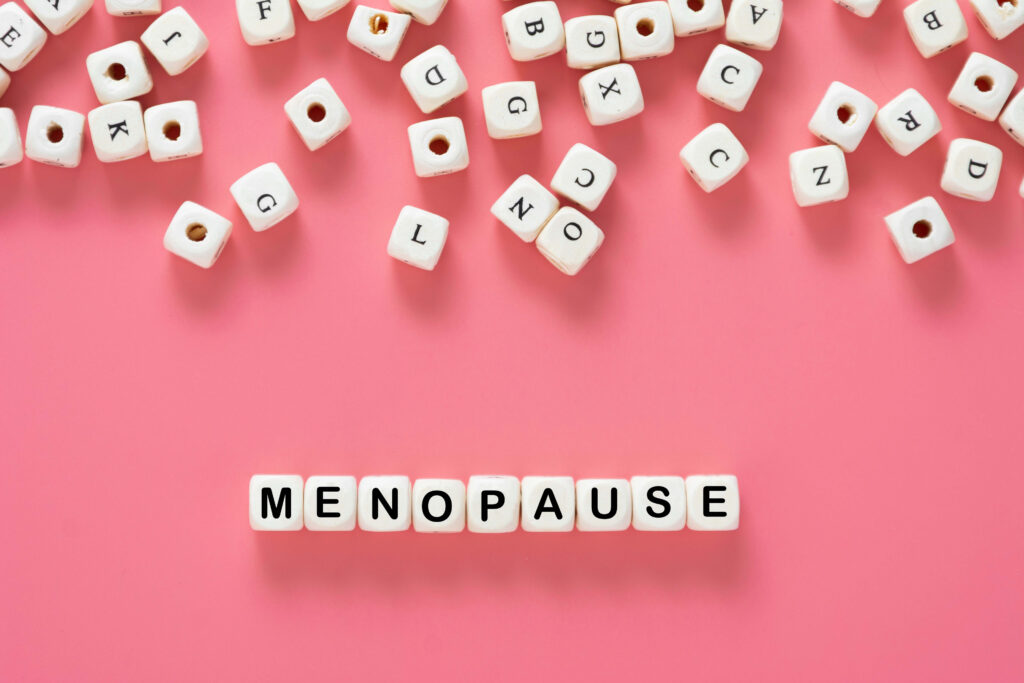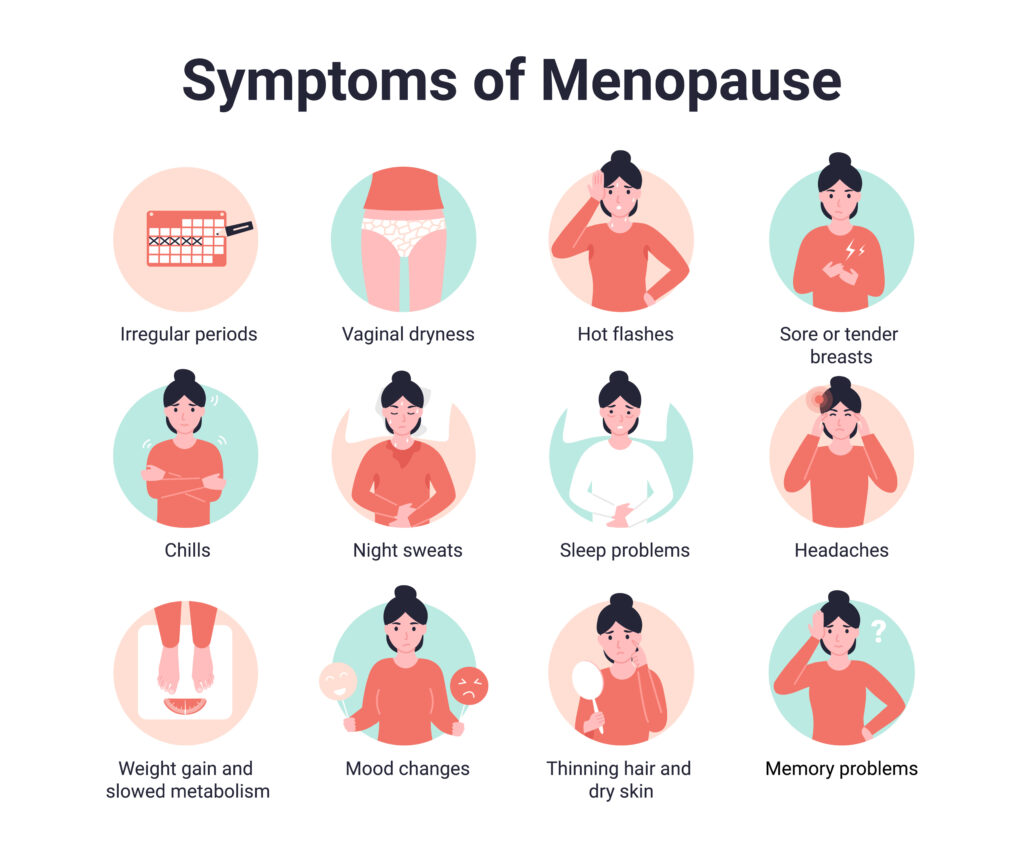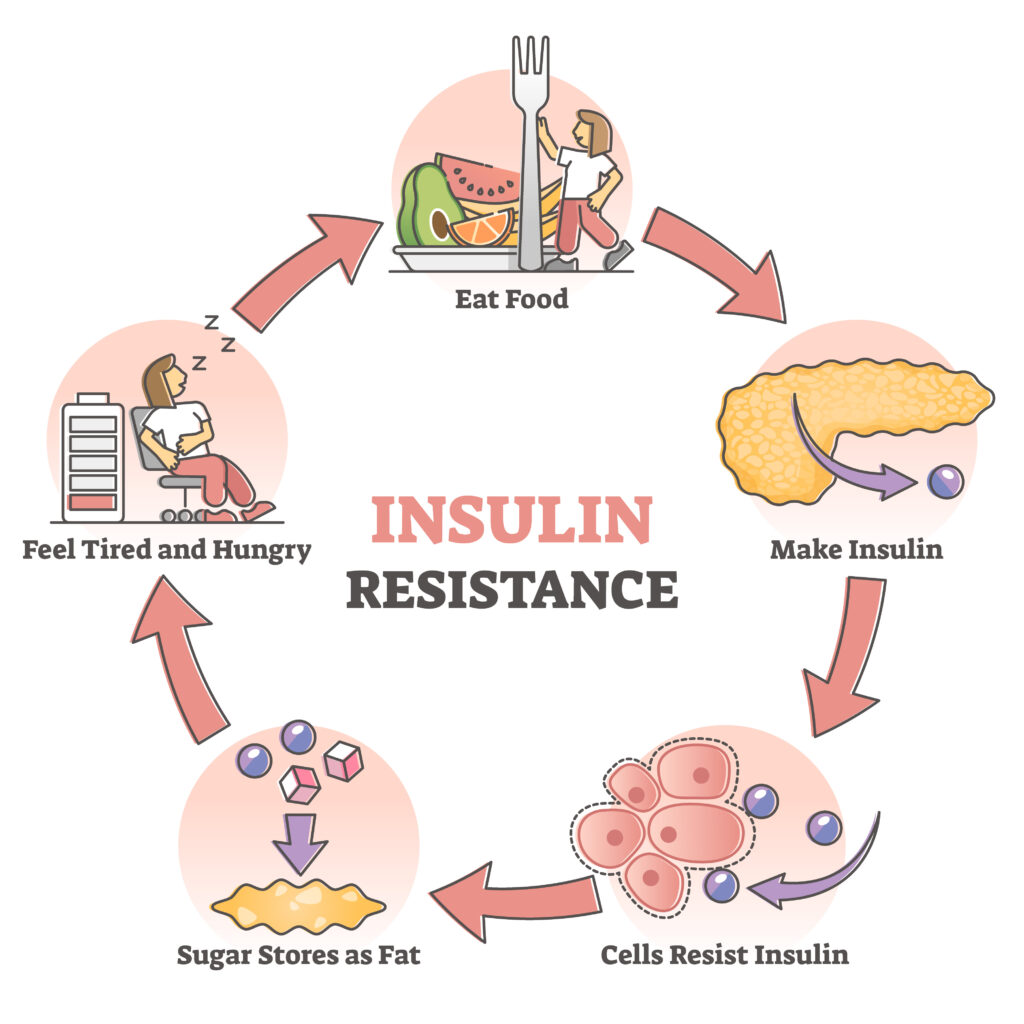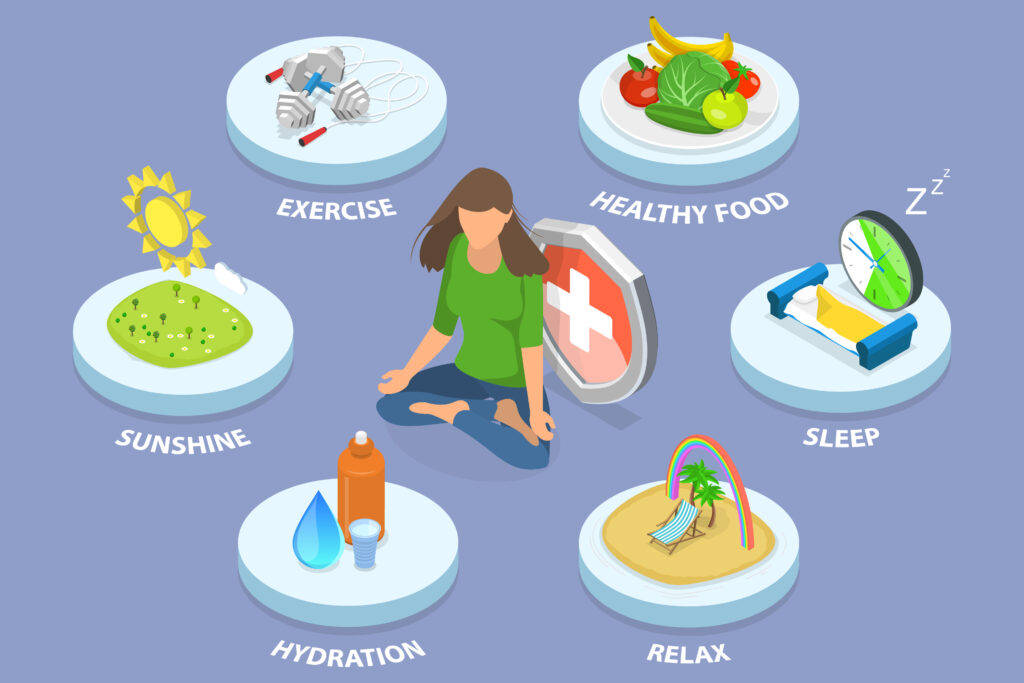
Menopause Mysteries Explained – How Nutrition Can Help!
Anne Till, MNutr, RDN, LDN
Ladies, have you ever found yourself feeling like you have stepped into a parallel universe? All of a sudden, the usual ways of managing your health and weight seem to be ineffective and leave you scratching your head in confusion. This is a common scenario for many women during menopause. This stage in life is characterized by changes in appetite, sleep, strength, metabolism, and body composition that can leave you feeling overwhelmed and searching for answers.
The root of these changes lies in the hormonal fluctuations that occur during menopause. One of the primary hormonal changes is a decrease in estrogen levels. Estrogen plays a significant role in various functions in the body, including regulating metabolism, and its loss can lead to a slower metabolism and increased appetite. The decline in estrogen levels may also contribute to insulin resistance and result in problems regulating body weight, blood sugar, blood pressure, and cholesterol levels.

The Estrogen-Insulin Connection
Let’s dive a little deeper into insulin resistance and its association with menopause. Insulin sensitivity refers to the body’s ability to use a moderate amount of insulin to move glucose from the bloodstream into cells where it is used for energy. Insulin resistance occurs when the cells no longer respond to the normal amount of insulin, and the pancreas (the organ responsible for producing insulin) compensates by producing larger amounts of insulin to force glucose into resistant cells to maintain normal blood sugar levels.
One of the key characteristics of insulin resistance in its early stages is higher-than-normal insulin levels in the blood. Insulin is a hormone that acts as a messenger in the body and instructs cells to open and allow glucose to enter the cells. However, excessive insulin levels send a signal to the body that fat burning is not necessary, and as a result, both dietary and stored body fat cannot be easily used for energy. Thus insulin resistance, coupled with high insulin levels, typically leads to abdominal fat storage, which many women notice during menopause as weight starts to accumulate in the abdominal area and many women report that they are uncomfortable with the idea of a thickening waistline.

The Estrogen-Dopamine Connection
![]()
Menopause also brings about changes that may affect mood and appetite. A decrease in estrogen levels can contribute to a decrease in dopamine levels in the brain. Dopamine is a neurotransmitter that plays a role in reward and pleasure, and it regulates appetite and food intake. Low dopamine levels can lead to feelings of fatigue and an increase in food cravings, particularly for sugary, starchy, salty, and crunchy foods. These foods can temporarily increase dopamine levels and provide a sense of pleasure and reward, but the effects are usually short-lived, and consuming too much of these foods can contribute to weight gain and other health problems.
Menopause – Sleep and Fatigue
Unfortunately, menopause can also have a significant impact on sleep. This is largely due to hormonal changes, which can cause hot flashes and night sweats, both of which can disrupt sleep. Additionally, menopause can cause sleep disturbances, such as insomnia or restless sleep, due to anxiety, depression, or other mood changes that often accompany this stage of life. Sleep disruption is associated with feelings of chronic fatigue and problems with appetite regulation as a person may feel if they eat more they may feel more energized or alert.
Feelings of fatigue from low estrogen and associated sleep and problems with insulin resistance can lead to low energy levels, making it difficult to perform daily activities and maintain the same level of physical activity as before. It’s important for women experiencing fatigue during menopause to prioritize self-care.
Can Supplements Help?
 When searching for answers it is tempting to fall for the “promise of many supplements and programs”. While some have merit it is valuable to have a professional such as a dietitian guide you along the way.There are a variety of supplements that can help alleviate menopausal symptoms. Some popular options include:
When searching for answers it is tempting to fall for the “promise of many supplements and programs”. While some have merit it is valuable to have a professional such as a dietitian guide you along the way.There are a variety of supplements that can help alleviate menopausal symptoms. Some popular options include:
- Herbal products such as black cohosh, soy phytoestrogens, Red Clover and Isoflavones, and other complementary herbal medicines are believed to have a balancing effect on hormones and can help reduce hot flashes and night sweats. Others are compounds that mimic some of the effects of estrogen in the body. These may help alleviate hot flashes, vaginal dryness, and other symptoms of menopause.
- Calcium and Vitamin D: These nutrients are important for bone health and can help prevent osteoporosis, a condition that is common during menopause.
- Omega-3 fatty acids: These healthy fats can help reduce inflammation and improve overall well-being, including mood.
- Magnesium may also help alleviate some symptoms of menopause. Hormonal changes can lead to increased feelings of anxiety, irritability, and depression, and magnesium has been shown to have a calming effect on the nervous system. Additionally, magnesium can help improve sleep, which can be disrupted during menopause. Some women also experience muscle and joint aches during menopause, and magnesium has been shown to have a pain-relieving effect. While magnesium supplements can be beneficial, it’s important to consult with a dietitian before starting any new supplement regimen to ensure it’s safe and appropriate for your individual needs.
While supplements may provide some relief, they generally are not considered a substitute for conventional medical treatment or advice. Before taking any supplements, it’s important to consult with your dietitian to determine the best course of action for your specific situation and to determine which supplements will provide the most benefit for your needs.
What Can You Do to Boost Dopamine Levels and Improve Insulin Sensitivity?
It is always best to get a professional such as your dietitian and gynecologist to help you navigate the new territory of menopause and associated metabolic changes and symptoms. But here are a few healthy lifestyle behaviors that can really help.

- Exercise regularly: Physical activity can increase dopamine production and improve insulin sensitivity and lower circulating insulin levels to assist with weight regulation and other problems associated with insulin resistance.
- Eat a healthy diet: Consuming a diet rich in fruits, vegetables, omega-9-rich fats such as olive oil and nuts, controlled amounts of whole grains, and lean proteins can help to improve insulin sensitivity and provide the necessary nutrients for dopamine production.
- Get enough sleep: Adequate sleep is important for maintaining healthy dopamine and insulin levels, and exercising regularly can support and improve sleep habits during menopause.
- Reduce stress: Chronic stress can reduce dopamine levels and increase insulin resistance. Practicing stress-reduction techniques like mindfulness meditation, yoga, and deep breathing can help.
- Avoid excessive alcohol consumption, which can disrupt dopamine and insulin levels.
- Incorporate probiotics and prebiotics in your diet: Gut bacteria play a role in neurotransmitter production, including dopamine, and special nutrients produced by gut flora called short-chain fatty acids can help to improve insulin sensitivity.
- Vitamin D supplementation: Low vitamin D levels have been linked to decreased dopamine levels and insulin resistance. Get your levels checked and talk to your dietitian about supplementation when indicated.
Get Support

The journey of menopause can be challenging, but you don’t have to face it alone. A dietitian can offer you the support and guidance you need to manage many of the changes that come with menopause. One of their main goals is to help improve insulin sensitivity through diet and lifestyle changes. Additionally, your dietitian can help you regain control of your appetite, which can be disrupted by decreased dopamine levels. Your dietitian can provide strategies to boost dopamine through dietary factors and create a personalized plan to optimize appetite control.
A personalized nutrition plan that takes into account your unique needs and lifestyle can help you manage your health and weight during menopause. Your dietitian can also help you make healthier food choices, plan balanced meals and snacks, and develop strategies for managing cravings and stress. In addition to nutrition counseling, your dietitian can also offer guidance on physical activity and lifestyle changes that can support you during menopause. In essence, your dietitian is your cheerleader on your menopausal journey, helping you to navigate new territory with tools you may not have needed before.
Lastly, ladies, while menopause can be a challenging time, it can also be a chance for growth and transformation. With the right support and healthy lifestyle changes, you can navigate this stage of life with confidence and grace. You are not alone. There are many resources available to help you, including other knowledgeable healthcare professionals, supportive friends and family members, and online communities. With a positive attitude, commitment to your health, and a little effort, you can successfully manage menopause and emerge stronger, healthier, and more confident than ever before. So embrace this journey and have faith that with support, you can make healthy changes that will enhance your life for years to come.
To Connect with Us Click Here
Call Us Today: 919-990-1130





